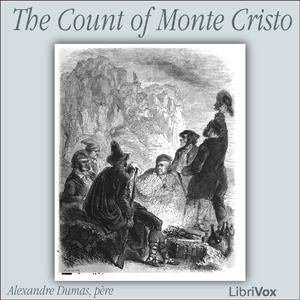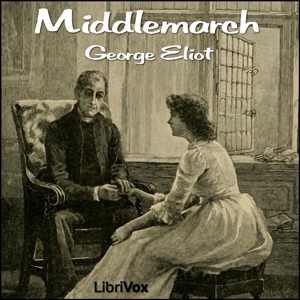- Preface
- Part 1, Chapter 1
- Part 1, Chapter 2
- Part 1, Chapter 3
- Part 1, Chapter 4
- Part 1, Chapters 5 and 6
- Part 2, Chapter 1
- Part 2, Chapter 2
- Part 2, Chapter 3
- Part 2, Chapter 4
- Part 2, Chapter 5
- Part 3, Chapter 1
- Part 3, Chapter 2
- Part 3, Chapter 3
- Part 3, Chapter 4
- Part 3, Chapters 5 and 6
- Part 3, Chapters 7 and 8
- Part 4, Chapters 1 and 2
- Part 4, Chapters 3 and 4
- Part 4, Chapters 5 and 6
- Part 5, Chapter 1
- Part 5, Chapters 2 and 3
- Part 5, Chapter 4
- Part 6, Chapters 1 and 2
- Part 6, Chapters 3 and 4
- Part 6, Chapter 5
- Part 6, Chapter 6 and 7
- Part 6, Chapter 8
- Part 7, Chapter 1
- Part 7, Chapter 2
- Part 7, Chapters 3 and 4
- Part 7, Chapter 5
- Part 7, Chapter 6
- Part 7, Chapter 7
- Part 7, Chapters 8 and 9
- Part 8, Chapter 1
- Part 8, Chapter 2
- Part 8, Chapter 3
- Part 8, Chapter 4
- Part 9, Chapter 1
- Part 9, Chapter 2
- Part 9, Chapters 3 and 4
- Part 9, Chapter 5
- Part 9, Chapter 6
- Part 9, Chapter 7
- Part 10, Chapters 1 and 2
- Part 10, Chapter 3
- Part 10, Chapter 4
- Part 10, Chapter 5
- Part 10, Chapter 6
- Part 11, Chapter 1
- Part 11, Chapters 2 and 3
- Part 11, Chapters 4 and 5
- Part 11, Chapters 6 and 7
- Part 12, Chapter 1
- Part 12, Chapter 2
- Part 12, Chapter 3
- Part 12, Chapters 4 and 5
- Part 12, Chapters 6 and 7
- Part 13, Chapters 1 and 2
- Part 13, Chapters 3 and 4
- Part 13, Chapter 5
- Part 13, Chapter 6
- Part 14, Chapters 1 and 2
- Part 14, Chapter 3
- Part 14, Chapter 4
- Part 14, Chapter 5
- Part 14, Chapter 6
- Part 14, Chapters 7 and 8
- Part 15, Chapter 1
- Part 15, Chapter 2
- Part 15, Chapters 3 and 4
- Part 16, Chapters 1 and 2
- Part 16, Chapter 3
- Part 16, Chapter 4
- Part 16, Chapter 5
- Part 16, Chapter 6
- Part 16, Chapter 7
- Part 16, Chapters 8 and 9
- Part 16, Chapters 10 and 11
- Part 17, Chapter 1
- Part 17, Chapters 2 and 3
- Part 17, Chapter 4
- Part 17, Chapters 5 and 6
- Part 18, Chapters 1 and 2
- Part 18, Chapters 3 and 4
- Part 18, Chapter 5
- Part 18, Chapters 6 and 7
- Part 18, Chapter 8
The quiet country life of the Caxton family is interrupted by a visit to London. There the son, Pisistratus, is offered the position of secretary to a leader in Parliament. That parliamentarian's wife was loved as a girl by both Pisistratus' father and uncle; but she had passed them both by to make a marriage better suited to an ambitious woman. By a freak of fate, Pisistratus now falls in love with her daughter Fannie.
Meanwhile, Pisistratus' uncle is estranged from his own son. Between each person's pride, the rift doesn't seem possible to settle. Pisistratus does what he can to heal the wounds and reunite the family.
A further outline of this story would give no idea of its charm. The mutual affection of the Caxtons is finely indicated, and the gradations of light and shade make a beautiful picture. Never before had Bulwer written with so light a touch and so gentle a humor, and this novel has been called the most brilliant and attractive of productions. His gentle satire of certain phrases of political life was founded, doubtless, on actual experience. - Summary modified from "Warner's Synopsis of Books Ancient and Modern, Vol. 2" (1910)
Meanwhile, Pisistratus' uncle is estranged from his own son. Between each person's pride, the rift doesn't seem possible to settle. Pisistratus does what he can to heal the wounds and reunite the family.
A further outline of this story would give no idea of its charm. The mutual affection of the Caxtons is finely indicated, and the gradations of light and shade make a beautiful picture. Never before had Bulwer written with so light a touch and so gentle a humor, and this novel has been called the most brilliant and attractive of productions. His gentle satire of certain phrases of political life was founded, doubtless, on actual experience. - Summary modified from "Warner's Synopsis of Books Ancient and Modern, Vol. 2" (1910)
There are no reviews for this eBook.
There are no comments for this eBook.
You must log in to post a comment.
Log in











